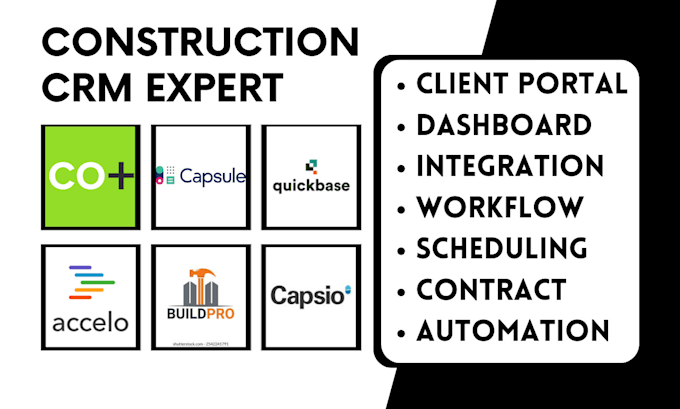Supercharge Your Small Business: Unlocking Productivity with the Right CRM
The Power of CRM for Small Businesses: A Productivity Revolution
In today’s fast-paced business environment, small businesses are constantly looking for ways to gain a competitive edge. One of the most effective tools for achieving this is a Customer Relationship Management (CRM) system. While often associated with large enterprises, CRM offers significant benefits for small businesses, particularly in boosting productivity. This article will delve into the world of CRM, exploring its advantages, how it can enhance productivity, and how to choose the right system for your specific needs.
Let’s face it, running a small business is tough. You’re juggling multiple hats, from sales and marketing to customer service and operations. It’s easy to get overwhelmed and lose track of important details. This is where a CRM system comes into play. It acts as a central hub for all your customer-related information, streamlining your processes and freeing up your time to focus on what matters most: growing your business.
What Exactly is CRM? Breaking Down the Basics
At its core, CRM is a technology that helps businesses manage and analyze customer interactions and data throughout the customer lifecycle. It’s not just about storing contact information; it’s about understanding your customers, building relationships, and ultimately, driving sales and revenue. Think of it as a digital brain for your business, constantly learning and adapting to your customer’s needs.
A CRM system typically includes features such as:
- Contact Management: Storing and organizing customer contact information, including names, addresses, phone numbers, and email addresses.
- Lead Management: Tracking potential customers (leads) and nurturing them through the sales pipeline.
- Sales Automation: Automating repetitive sales tasks, such as email follow-ups and appointment scheduling.
- Marketing Automation: Automating marketing activities, such as email campaigns and social media posting.
- Customer Service: Managing customer inquiries and resolving issues efficiently.
- Reporting and Analytics: Providing insights into sales performance, customer behavior, and marketing effectiveness.
The beauty of a CRM system is its ability to integrate all these features into a single, unified platform. This eliminates the need for disparate spreadsheets and manual processes, saving you time and reducing the risk of errors.
The Productivity Boost: How CRM Transforms Small Business Operations
The impact of CRM on small business productivity is undeniable. By automating tasks, streamlining workflows, and providing valuable insights, CRM empowers you to do more with less. Here’s a closer look at some key areas where CRM drives productivity gains:
1. Enhanced Sales Efficiency
CRM systems streamline the sales process, making it easier for your team to close deals. Features like lead scoring and automated follow-ups ensure that your sales reps are focusing their efforts on the most promising leads. Sales automation tools can handle repetitive tasks like sending emails and scheduling appointments, freeing up your sales team to spend more time building relationships and closing deals. This translates to a shorter sales cycle, more closed deals, and ultimately, increased revenue.
2. Improved Marketing Effectiveness
CRM helps you understand your customers better, allowing you to tailor your marketing efforts to their specific needs and preferences. By segmenting your customer base, you can create targeted marketing campaigns that resonate with each group. Marketing automation features, such as email marketing and social media scheduling, help you reach your audience consistently and efficiently. This leads to higher conversion rates and a better return on your marketing investment.
3. Streamlined Customer Service
Happy customers are loyal customers. CRM systems provide a centralized platform for managing customer inquiries and resolving issues. By tracking customer interactions and storing relevant information, your customer service team can quickly access the information they need to provide prompt and effective support. This leads to increased customer satisfaction, reduced churn, and positive word-of-mouth referrals.
4. Better Data Management
Say goodbye to messy spreadsheets and scattered data. CRM systems provide a centralized repository for all your customer-related information. This ensures that everyone in your organization has access to the same data, eliminating confusion and errors. Accurate and up-to-date data is essential for making informed business decisions and tracking your progress towards your goals.
5. Increased Collaboration
CRM systems facilitate collaboration between different departments within your organization. Sales, marketing, and customer service teams can all access and share customer information, ensuring that everyone is on the same page. This improved communication and collaboration leads to a more cohesive and efficient operation.
Choosing the Right CRM for Your Small Business: A Step-by-Step Guide
Selecting the right CRM system is crucial for maximizing its benefits. With so many options available, it can be overwhelming to choose the right one. Here’s a step-by-step guide to help you make the right decision:
1. Define Your Needs and Goals
Before you start evaluating CRM systems, take the time to identify your specific needs and goals. What are your biggest pain points? What do you hope to achieve with a CRM system? Consider the following questions:
- What are your key business processes?
- What are your sales and marketing goals?
- What are your customer service needs?
- What data do you need to track?
- What features are essential for your business?
Answering these questions will help you narrow down your options and choose a system that aligns with your specific requirements.
2. Research CRM Systems
Once you have a clear understanding of your needs, it’s time to start researching different CRM systems. There are many options available, ranging from simple, affordable solutions to more comprehensive, enterprise-level platforms. Some popular CRM systems for small businesses include:
- Zoho CRM: A versatile and affordable option with a wide range of features.
- HubSpot CRM: A free CRM with powerful marketing and sales tools.
- Salesforce Sales Cloud: A comprehensive platform with a wide range of customization options (can be more complex).
- Pipedrive: A sales-focused CRM designed for ease of use.
- Freshsales: A cloud-based CRM with a focus on sales and customer support.
Read reviews, compare features, and consider the pricing and support options offered by each system.
3. Consider Your Budget
CRM systems come in a variety of price points. Determine your budget and look for systems that fit within your financial constraints. Some CRM systems offer free plans with limited features, while others offer tiered pricing based on the number of users and features. Consider the long-term cost of the system, including implementation, training, and ongoing support.
4. Evaluate Features
Make a list of the features that are essential for your business. Consider features such as:
- Contact management: The ability to store and organize contact information.
- Lead management: Tools for tracking and nurturing leads.
- Sales automation: Features for automating sales tasks.
- Marketing automation: Tools for automating marketing campaigns.
- Customer service: Features for managing customer inquiries.
- Reporting and analytics: Tools for tracking key metrics.
- Integration: The ability to integrate with other business tools, such as email marketing platforms and accounting software.
Choose a system that offers the features you need to streamline your processes and achieve your goals.
5. Assess Ease of Use
The best CRM system is one that your team will actually use. Choose a system that is easy to learn and navigate. Consider the user interface, the availability of training and support, and the overall user experience. A user-friendly system will increase adoption rates and ensure that your team is using the system effectively.
6. Consider Scalability
Choose a CRM system that can grow with your business. As your business expands, you’ll need a system that can handle increasing amounts of data and users. Look for a system that offers flexible pricing plans and the ability to add features as needed.
7. Test and Implement
Once you’ve narrowed down your options, consider testing a few different systems. Most CRM providers offer free trials or demos. Take the time to explore the system’s features and see how it works in practice. Once you’ve chosen a system, develop a detailed implementation plan. This should include data migration, user training, and ongoing support.
Maximizing Your CRM Investment: Best Practices for Small Businesses
Implementing a CRM system is just the first step. To maximize your investment and achieve the desired results, you need to follow these best practices:
1. Data Migration and Clean-Up
Before you start using your CRM system, you’ll need to migrate your existing data. This can be a time-consuming process, so it’s important to plan ahead. Clean up your data before migrating it to ensure accuracy and consistency. Remove duplicate entries, correct errors, and standardize your data format.
2. User Training
Provide thorough training to your team on how to use the CRM system. Ensure that everyone understands the system’s features and how to use them effectively. Offer ongoing support and training to address any questions or issues that arise.
3. Define Clear Processes
Establish clear processes for using the CRM system. Define how leads are tracked, how sales opportunities are managed, and how customer interactions are documented. Standardized processes will ensure consistency and efficiency.
4. Track Key Metrics
Identify the key metrics that are important for your business, such as sales conversion rates, customer satisfaction scores, and marketing ROI. Track these metrics regularly to measure your progress and identify areas for improvement.
5. Regularly Review and Optimize
CRM systems are not a set-it-and-forget-it solution. Regularly review your CRM system to ensure that it’s meeting your needs. Identify areas for improvement and make adjustments as needed. Stay up-to-date with the latest CRM features and best practices.
6. Integrate with Other Tools
Integrate your CRM system with other business tools, such as email marketing platforms, accounting software, and social media channels. This will streamline your workflows and provide a more complete view of your customers.
7. Foster a CRM-Focused Culture
Encourage your team to embrace the CRM system and use it as their primary tool for managing customer interactions. Promote a culture of data-driven decision-making and encourage your team to leverage the CRM system to improve their performance.
Overcoming Common CRM Challenges in Small Businesses
While CRM offers numerous benefits, small businesses may encounter certain challenges during implementation and adoption. Being aware of these potential hurdles can help you proactively address them and ensure a successful CRM implementation.
1. Data Entry and Maintenance
One of the biggest challenges is ensuring accurate and up-to-date data entry. This requires discipline and commitment from your team. Implement clear data entry guidelines and provide training to ensure consistency. Consider automating data entry where possible to reduce manual effort.
2. User Adoption
Getting your team to adopt and use the CRM system can be a challenge. Some employees may resist change or find the system difficult to use. Provide adequate training and support to address these concerns. Highlight the benefits of using the CRM system and demonstrate how it can make their jobs easier.
3. Integration Issues
Integrating your CRM system with other business tools can sometimes be complex. Ensure that you choose a CRM system that integrates seamlessly with your existing tools. If you encounter integration issues, seek help from the CRM provider or a qualified IT professional.
4. Cost Considerations
The cost of a CRM system can be a barrier for some small businesses. Carefully consider your budget and choose a system that offers the features you need at a price you can afford. Explore free or low-cost options and consider the long-term cost of the system, including implementation, training, and ongoing support.
5. Lack of a Clear Strategy
Without a clear CRM strategy, you may struggle to achieve your desired results. Define your needs and goals before implementing a CRM system. Develop a detailed implementation plan and regularly review your progress to ensure that you’re on track.
The Future of CRM for Small Businesses
The CRM landscape is constantly evolving, with new technologies and features emerging all the time. Here are some trends to watch out for:
1. Artificial Intelligence (AI)
AI is playing an increasingly important role in CRM. AI-powered features can automate tasks, provide insights into customer behavior, and personalize customer interactions. Expect to see more AI-powered CRM features in the future.
2. Mobile CRM
Mobile CRM allows you to access your CRM data on the go. This is particularly useful for sales teams who spend a lot of time in the field. Mobile CRM applications are becoming increasingly sophisticated, with features such as offline access and voice-activated commands.
3. Social CRM
Social CRM integrates social media data into your CRM system. This allows you to track customer interactions on social media, monitor brand mentions, and engage with your audience in real time.
4. Focus on Personalization
Customers expect personalized experiences. CRM systems are increasingly focused on helping businesses deliver personalized interactions. This includes personalized email campaigns, targeted product recommendations, and customized customer service.
By staying up-to-date with these trends, you can ensure that your CRM system is equipped to meet the evolving needs of your business.
Conclusion: Embracing CRM for Small Business Success
CRM is no longer a luxury; it’s a necessity for small businesses looking to thrive in today’s competitive market. By implementing the right CRM system and following best practices, you can unlock significant productivity gains, improve customer relationships, and drive revenue growth. Don’t let your business fall behind. Embrace the power of CRM and start supercharging your small business today.




